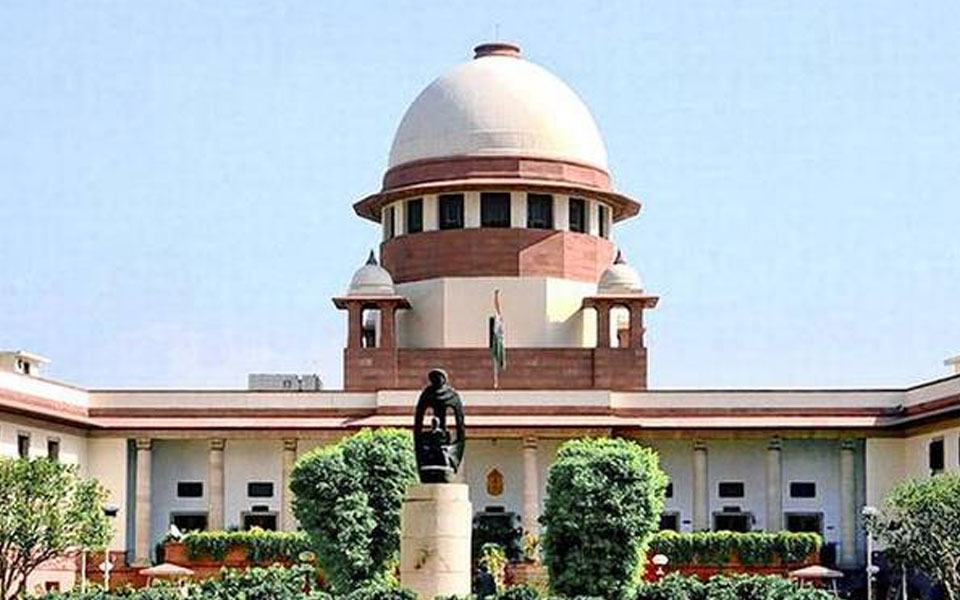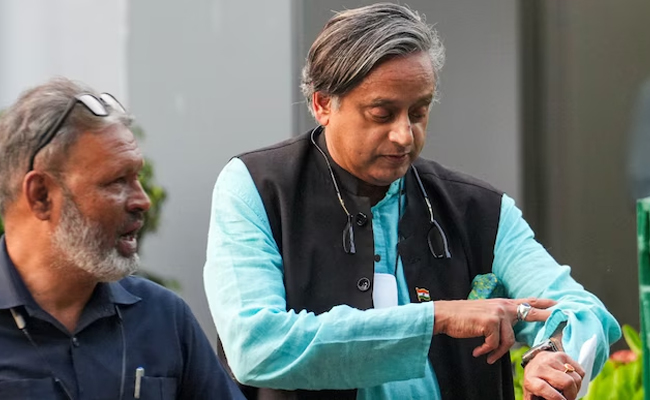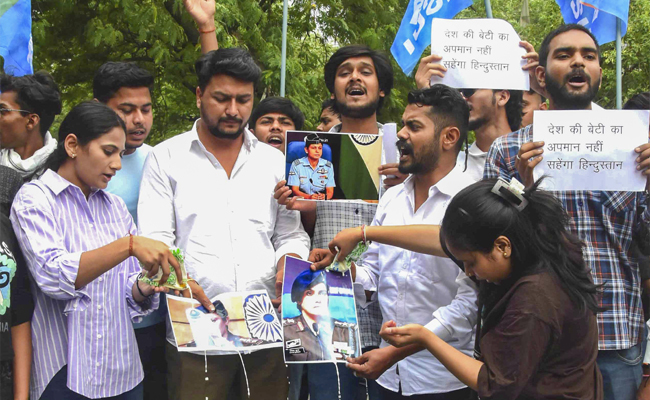New Delhi, Aug 21 : The Supreme Court on Tuesday ruled that NOTA (None of the above) option cannot be allowed in the Rajya Sabha elections as it would "wholly undermine the purity of democracy".
"The option of NOTA may serve as an elixir in direct elections but in respect of election to Council of States which is a different one, it would wholly undermine the purity of democracy and also serve as the Satan of defection and corruption," said a bench of Chief Justice Dipak Misra, Justice A.M. Khanwilkar and Justice D.Y. Chandrachud.
Quashing a notification issued by the Election Commission introducing NOTA in Rajya Sabha elections, Chief Justice Misra speaking for the bench said: "The introduction of NOTA in indirect election may on the first glance tempt the intellect but on a keen scrutiny, it falls to the ground, for it completely ignores the role of an elector in such an election and fully destroys the democratic value."
"The idea may look attractive but its practical applications defeat the fairness ingrained in an indirect election," the court said.
"More so where the electors' vote has value and the value of that vote is transferable... It is an abstraction which does not withstand the scrutiny of the 'cosmos of correctness'," it added quoting Justice Krishna Iyer.
The apex court said it has to be remembered that "democracy garners its strength from the citizenry trust which is sustained only on the foundational pillars of purity, integrity, probity and rectitude and such strongholds can be maintained only by ensuring the the process of election remains unsullied and unpolluted so that the citadel of democracy stand still as an impregnable bulwark against unscrupulous forces".
Let the Truth be known. If you read VB and like VB, please be a VB Supporter and Help us deliver the Truth to one and all.
Bhopal: The Madhya Pradesh High Court on Thursday expressed strong dissatisfaction with the FIR registered by the state police against BJP Minister Kunwar Vijay Shah over his controversial remarks against Colonel Sofiya Qureshi, calling it deficient in crucial legal elements. The court has now decided to monitor the police investigation to ensure it proceeds fairly and without external influence.
A division bench of Justices Atul Sreedharan and Anuradha Shukla noted that the FIR lacked any substantive mention of the suspect’s actions that would establish the offences under the relevant provisions of the Bharatiya Nyaya Sanhita (BNS), specifically Sections 152, 196(1)(b), and 197(1)(c). These provisions relate to acts endangering national sovereignty, disturbing communal harmony, and threatening national integration.
The court observed that Paragraph 12 of the FIR merely reproduced the court's previous order without laying down how the minister's comments constituted the registered offences. “The FIR has been registered in such a manner... so that if it is challenged under erstwhile Section 482 CrPC, the same may be quashed as it is deficient in material particulars,” the bench remarked.
To prevent what it called a "subterfuge", the court directed that its full order dated May 14 be treated as part of the FIR. The court stated it would now monitor the investigation to ensure it is conducted lawfully and impartially.
The controversy stems from Vijay Shah’s statement, where he appeared to link Col. Qureshi, a senior officer of the Indian Armed Forces, to terrorists by referring to her as their “sister”. His comments were made in the context of Operation Sindoor, a military operation against Pakistani terror targets, during which Col. Qureshi had served as a spokesperson.
“Jinhone humari betiyon ke sindoor ujade the… humne unhiki behen bhej kar ke unki aisi ki taisi karwayi,” Shah had said, a remark the court found to be not only disparaging but dangerous and communal.
The High Court had earlier called the minister's language “gutter-level” and condemned his innuendos against a decorated military officer, stating that such remarks “encourage feelings of separatist activities by imputing separatist feeling to anyone who is Muslim, thereby endangering the sovereignty or unity and integrity of India.”
Following the High Court’s stern direction, Shah issued a public apology on social media, calling Col. Sofiya Qureshi “the nation’s sister.” The state government also posted on its official handle that it was taking appropriate action in compliance with the court’s order.
However, the court made it clear that it was not satisfied with the FIR's content and expressed concern that it was framed in a way that could undermine its legal sustainability.
Meanwhile, Vijay Shah has approached the Supreme Court challenging the Madhya Pradesh High Court’s suo motu direction for registering an FIR against him.
Colonel Sofiya Qureshi had become a prominent face of the Indian Armed Forces during Operation Sindoor, regularly briefing the media on military actions against terror camps in Pakistan. Her professionalism and presence made her a symbol of national service and unity, leading to outrage after Shah’s disparaging remark.
The High Court has listed the matter for further hearing immediately after the court vacation. The bench emphasized that its monitoring would not interfere with the autonomy of the investigating agency, but would ensure justice is not subverted by procedural lapses or political pressure.




